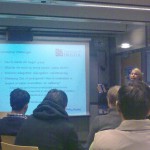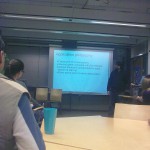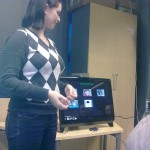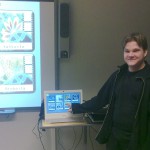It is evident my whining about focus and writing. The only way to stop complaining is to overcome it. Honestly, anyone that wants to overcome a self-problem requires A LOT of desire, conviction, effort, discipline, and a strategy. My writing improvement strategy involves reading, listening to others and writing. There are A LOT of books supporting how to improve writing. The craft of research is one of my favorites. Listening others is very valuable at different levels. Writing is key.
From my rejected papers, Roman asked me in this post what I had learned from my referees’ feedback. Honestly, even that I categorized the feedback at that time, there were only words, which I could share or write in this blog, but I couldn’t feel nor understand them. I have no idea how other humans evolve, but I need time to comprehend a message, a situation, an experience.
Some months later, I am able to share some tips from this writing_learning_process:
TIP_1: Keep things simple.
Simplicity is a common advice that I get from my readers (e.g. referees, supervisors) and by reading books about writing. To understand this advice is another story. My actual interpretation and experience is: I can keep things simple only when I understand them clearly.
When I am able to write or express a whole idea in one sentence. At that moment I can claim that my idea is concrete, then I can write it in a simple way. If I can’t write an idea in one sentence, then it is a draft idea, which means it must be polished; I need to think still on the idea.
I am developing a process on how to clarify my own ideas, but that will be another post.
TIP_2: Define your terms.
I haven’t seen this advice in a book. But while working with senior researchers, and specially with my supervisors, I hear constantly: be clear in your definitions.
I must define all the terms I will use in my manuscript at the beginning. In addition, I should use those terms along the paper consistently.
Warning! One must define terms, in a simple manner. Hence, one must have a clear understanding of them. (read tip 1)
TIP_3: No waste words – use them all
If you write something, use it. Otherwise, do not write it.
In other words, if you are defining a concept, implies that the concept is used in the paper. If you do not use it, then do not write it; it turns redundant.
TIP_4: Be generous with others
Several books refer to this tip as promote a conversation. In the last days, I had the opportunity to listen Tim and Clint, and they have highlighted this tip: references make a paper stronger.
A scientific paper should supports an argument; the paper is a contribution to the world’s knowledge. If an argument is a discussion in which disagreement is expressed; meaning it is a debate; then more opinions should be present in the paper. Research papers are not dictatorships.
The paper must stimulate our thinking through a flow of arguments. It is actually a beauty.
TIP_5: Consistence.
Consistence is another noun easy to pronounce and hard to grasp. The way I am working towards reach consistency is as follow:
- Have a clear research question on the paper. I wrote this in the header and I keep it present as long as I am working with the document.
- Build an interesting argument. I promote this by inviting different experts to join my paper, I quote them.
- I assure myself that the defined terms are constantly present in the paper supporting the argument.
- Have a clear evidence to support the answer of the paper’s question
- The beginning and ending of the document must be related and complementary.
At this moment, the mentioned five tips are so far my digested outcomes from referees comments with support of others who had helped me to understand. Honestly, the five tips have helped me to focus. The day I succeed with my writing, then some of these tips might be transformed to rules. But meanwhile I hope they are useful for someone, and leave a comment if there is something that I am missing or it can be improved.
 Escher hands – My view on them is: we are improving ourselves constantly.
Escher hands – My view on them is: we are improving ourselves constantly.










